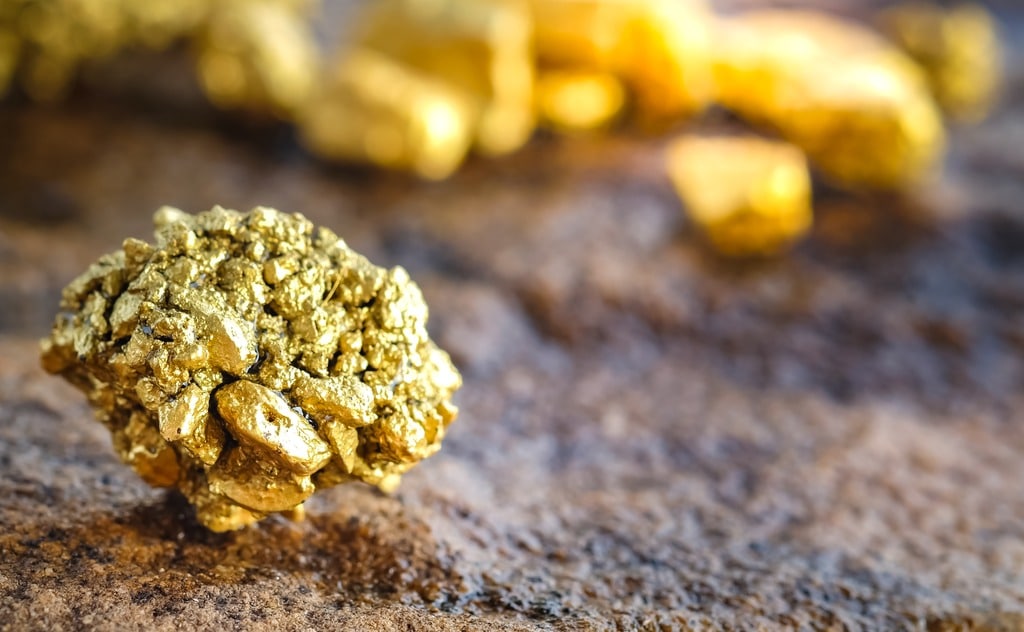Mental health can be defined as a person’s condition with regard to their psychological and emotional well-being. It affects how we think, feel and act, as well as aiding in the determination on how we handle stress, make choices, and relate to others. The development and maintenance of mental health is forever ongoing and will continuously be challenged throughout the course of our lives. Mental health can be influenced by many factors, the most common of which related to biological factors (genes or brain chemistry), life experiences (trauma or abuse), and family history. In these cases, diagnosis towards severe conditions such as depression, anxiety, addiction, obsessive compulsive disorder (OCD), anorexia, obesity, post-traumatic stress disorder (PTSD) and personality disorders, to name a few, are increasing at an alarming rate.
Alarming Mental Health Statistics
The Canadian Mental Health Association estimates that by age 40, about 50% of the population will have or have had a mental illness, with suicide accounting for 24% of all deaths among 15-24 year old’s and 16% among 25-44 year old’s. Suicide is one of the leading causes of death in both men and women, with many instances happening unexpectedly. Almost 50% of individuals who felt they have suffered from depression or anxiety have never gone to seek medical assistance due to the stigma attached to publicizing the illness.
While recent efforts have been made, pushing for the adoption of mental health to be considered as a serious illness, many still struggle with the perception of identity that follows the diagnosis. This leaves us to wonder, what can we do as a society to ensure that individuals are seeking the help they desperately require, and how can we improve the availability of effective medicines and treatments for those who do seek assistance? Psychedelics may not be the answer in entirety, but without the continuation of clinical trials and studies we will never fully uncover its true potential.
Spiritual Psychedelic Treatment vs Modern Medicines
With the numerous mental health illnesses identified, available treatments seem to have plateaued within the current medical system. Patients with severe illness are sent through a series of revolving doors, never provided with the opportunity to break through mental barriers required to consider the treatments a success. Using psychedelics for the treatment of mental health has yet to be taken seriously by the common medical community, but the healing potential and spiritual significance of psychedelic substances have been trusted and relied on by societies dating back thousands of years. Considering the fact that many indigenous civilizations throughout the world having adopted this form of healing, it makes little sense for the common populous to not warrant further research and delve further into the benefits it beholds.
The apparent challenge will be determining how to transfer the healing properties of psychedelics into the development and distribution of modern psychedelic-assisted therapies and medicines. The use of psychedelics as a medicine have apparent value that can be considered favorable for generations of future patients suffering from the countless versions of mental health. With several clinical trials already underway within the emerging psychedelic biotechnology sector, the following substances appear to be the focus of the industry in regard to providing realistic options that hold the highest potential to transform patient lives, carrying them towards a healthy and meaningful life.
Psilocybin is a naturally occurring compound found in over 200 species of mushrooms, commonly referred to as “magic” mushrooms, and has the capability to be synthetically manufactured. It is an indole alkaloid that has hallucinogenic properties, perceived to provide stimulation to the 5-Ht2a receptor. Psilocybin have shown promise in the treatment of treatment-resistant-depression (TRD), which is a type of depression that does not respond to conventional antidepressants and is estimated to affect more than 100 million people worldwide. Compass Pathways has successfully patented a synthetically derived psilocybin derivative known as COMP360, currently in clinical trials. With its FDA designation, psilocybin is inching closer to licensing approval for this therapy in the US, which may be granted as early as 2023.
Other potential applications for treatment include anxiety, addiction, OCD, anorexia, obesity, cluster headaches, Alzheimer’s disease, PTSD, and personality disorders.
Lysergic Acid Diethylamide (LSD) is chemically synthesized by combining lysergic acid and diethylamide. Its basic chemical structure is similar to an ergot alkaloid. The ergot fungus, which can be found feeding primarily on rye, contains lysergic acid. LSD is similar in structure to other entheogenic drugs such as psilocybin and ibogaine, considered to be a serotonin receptor agonist. MindMed is currently preparing Phase II clinical trials to examine the effects of microdosing LSD on the symptoms of ADHD with hopes of creating a non-hallucinogen medication to treat the illness. Other potential applications for treatment include cluster headaches, depression, anxiety, pain syndromes, alcoholism, schizophrenia, and Alzheimer’s disease.
Ibogaine is a naturally occurring compound found in the root bark of the Western Africa iboga shrub. It is an indole alkaloid that has hallucinogenic properties, and in small doses it acts as a general stimulant. MindMed has successfully obtained a patent for a synthetically derived substance similar to Ibogaine, labelled 18MC. Potential applications for treatment include alcoholism, opioid use disorder (OUD), cocaine and other amphetamine addictions and smoking cessation, and has been prescribed in non-scheduled countries for anti-addiction therapy.
3,4-Methylenedixymethamphetamine (MDMA) is a chemically synthesized stimulant of the central nervous system duplicated from amphetamine, sharing structural similarities to methamphetamine. MDMA is different from amphetamine and methamphetamine due to the addiction of a methylenedioxy group, causing it to resemble the hallucinogen, mescaline. Recent psychotherapy performed with the assistance of MDMA is showing promising results for the treatment of PTSD, with the successes providing consideration of FDA approval as soon as 2022. Having received breakthrough therapy designation in 2017, MAPS studies have shown that two-thirds of participants who completed MDMA assisted psychotherapy no longer meet the criteria for a PTSD diagnosis up to 12 months after receiving treatment. Commonly referred to as both an entactogen (translates as “touching within”) and an empathogen (generate empathy), the potential applications for treatment include PTSD, anxiety, and alcoholism
Ketamine is a chemically synthesized substance, sharing similarities to that of the hallucinogen phencyclidine (PCP). It was discovered shortly after PCP, while seeking an alternative anesthetic that lacked PCP’s prolonged states of delirium. Ketamine has proven useful when applying to medical practices as a general anesthetic and sedative, and is the only psychedelic currently featured on the World Health Organization (WHO) list of essential medicines. The benefits of the substance have seen the likes of Janssen Pharmaceutica patent one half of the ketamine molecule and create an FDA approved nasal spray combatting treatment-resistant-depression (TRD) under the brand name Spravato. Potential applications for treatment include PTSD, anxiety, alcoholism, pain syndromes, suicide ideation and chronic fatigue syndrome, while it is currently used as an anesthetic in humans as well as a rapid acting antidepressant (RAAD) to treat suicidality.
N,N-Dimethyltryptamine (DMT) is a chemical substance that naturally occurs in low concentrations within many plants and animals, which is both a derivative and a structural analog of tryptamine. It is the central active ingredient in ayahuasca and is thought to activate the 5-Ht2a receptors of the brain. The duration of action is brief, making it a potentially more useful option for clinical applications, as opposed to longer acting psychedelics such as psilocybin or LSD. Potential applications for treatment include anxiety, depression, and substance-use disorder.
Serotonin (5-Ht) is a chemical substance found in the brain. It is a neurotransmitter that is concentrated in the midbrain and the hypothalamus. Changes in its concentration are associated with several mood disorders. Certain types of depression are caused by reduced quantities or reduced activity of serotonin in the brain. Many conventional antidepressant drugs work by supporting the accumulation of serotonin in the brain, resulting in elevation of mood. Conversely, excessive serotonin levels in the brain appear to cause indications such as migraines and nausea. Many psychedelic drugs are thought to act by promoting serotonin activity via serotonin receptors, specifically the 5-Ht2a receptors.
Its Only Just Begun
The coming years present a multitude of opportunity for investors only comparable to the recent cannabis boom, however paling in comparison to the potential long term impact on society that psychedelic biotechnology can offer towards the treatment of mental health patients. Speculations can be made that with legalization becoming an afterthought in the near future, pharmaceutical psychedelics are likely to prove resilient when considering the “boom and bust” mindset surrounding the cannabis sector.
This consensus can be based on the simple fact that its potential to service widespread mental health disease, something that cannabis could never compare, is immeasurable at the moment due the ongoing research being performed, revealing new, innovative studies and applicable medicines as it progresses. MDMA and psilocybin have proven to be effective for the potential treatment of a wide range of conditions such as PTSD and depression, which are affecting countless millions of people across the world. Several companies had the insight to identify this key area of need long before a global pandemic worsened the state of an already fragile mental health landscape and are now well prepared to offer an enhanced set of treatments, with potential to collect hefty profits along the way.








